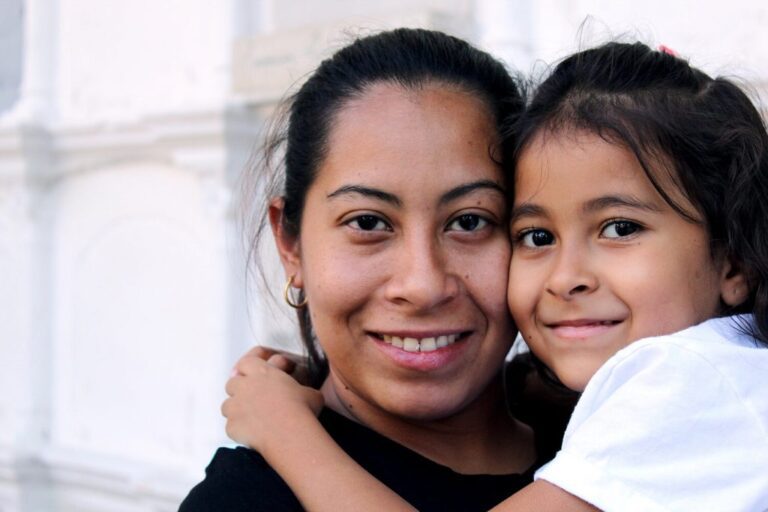Shifting Mindsets: The Promise of a Two-Generation Approach
Anne Mosle, vice president at the Aspen Institute and executive director of Ascend at the Aspen Institute, delivered a keynote address to the City Club of Cleveland in Ohio about the two-generation approach on Thursday, February 27. Following her lecture, she also participated in a question and answer session with present and online guests who viewed the conversation via livestream. The City Club is a non-partisan free speech forum that has convened world leaders to inform and educate the public since 1912 including, civil rights activists such as Rosa Parks, United States presidents starting with Theodore Roosevelt, and former president and CEO of the Aspen Institute Walter Isaacson.
During her speech “Shifting Mindsets: The Promise of a Two-Generation (2Gen) Approach,” Mosle compared advancing family prosperity via the two-generation approach to building a house. Not only does it take a team of experts, but also the most effective materials to set the foundation for educational success and economic mobility for families with low incomes.
“You’re going to need early learning,” she said. “You’re going to need that stability of housing. You’re going to need the windows of transportation. You’re going to a base of financial capacity. You’re going to need the glue of health care and child care.”
The onus is on “all segments of society to be a part of building that answer.” At Ascend, that answer requires 2Gen. She explained that by developing and implementing 2Gen solutions through a racial and gender equity lens for children and their parents simultaneously their strengths and needs can be more strategically addressed. Mosle noted 41 percent of children in the U.S. live in a family with low income, but added that policymakers, researchers, practitioners, and philanthropists have the capacity to “break the cycle of poverty.” For example, she highlighted the Jeremiah Program, an organization that prepares single mothers for the workforce and their children for school to reduce generational dependence on public assistance.
“They get nutritional support, parenting support, social capital support, while both mom and child are getting educational support within an intensive two-year period,” she said. “At the end of that time, it is a high dosage intervention, but both mom and child are graduating or entering school, into high paying jobs, high test scores, strong parenting skills, and stability at a rate that is about a $1 to $13 return evaluated model.”
Having a 2Gen mindset also involves acknowledging the critical changes in brain development for both the parent and child following childbirth. Mosle mentioned the work of Ascend Fellow Dr. Sarah Watamura who found that it imperative to acknowledge the biological and neurological changes that parents experience as their child grows.
“If you get a parent at the right time, they’re much more interested in access to education or ideas about job training because they’re wanting to provide for their kids,” she said.
This “mutual motivation,” a term coined by Ascend Fellow Dr. Lindsay Chase-Lansdale, is a key factor that propels postsecondary success for students who are parents – another core component of the 2Gen approach. 1 in 4 students in higher education is a parent thus making the acquisition of postsecondary degrees and credentials of the utmost importance to build family prosperity. Students who are parents are not simply looking to get by. Rather, they are motivated to receive a quality education and gain practical skills that will lead to a well-paying job in order to create the healthiest and most financially secure home for their children. Similarly, when a child’s needs are met and their health and well-being improve, the parent is reaffirmed to achieve even more.
Instead of viewing family prosperity as a complicated process, adjusting one’s perspective to see this challenge as an opportunity makes all the difference. From offering toys for children to rescheduling classes for their parents, the 2Gen approach is practical. Policies that intentionally place children and parents at the center, such as the Two-Generation Economic Empowerment Act which aims to identify more effective outcomes for families with low incomes, will create real change in the lives of families with low incomes.
“A lot of these ideas require a mindset shift to get to some different answers that could have some profoundly different impacts for both families today as well as for the next generation,” she said. “You have an incredible opportunity to be thinking about how you all put children and families at the center and what’s the story you’ll be telling for families today and the narrative you’ll put forward.”
Watch the full speech at the City Club here.
Related Posts





